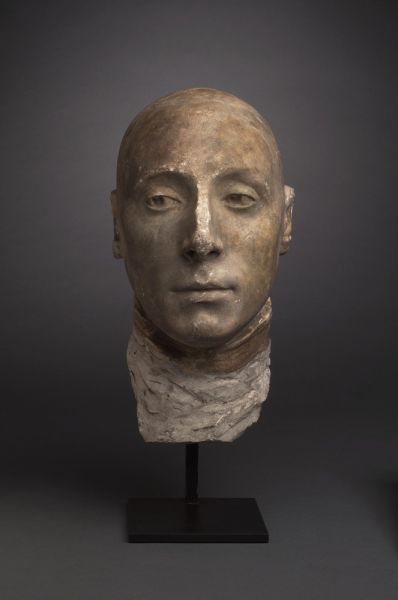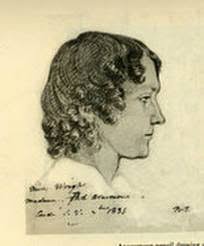|
From around a year before her execution, Olympe started to speak of the certainty of her death. She suspected that her criticisms of Robespierre would lead to her arrest. But she wanted her death to be useful. Unlike Charlotte Corday she was not willing to stoop to murder to save the revolution. But she did want Robespierre (and possibly Marat) dead, and in a response to a speech by him in which he tried to clear himself of a number of accusations, and compared himself to the heroes of the Roman Republic, she suggested a joint suicide: Robespierre would gain her death, which she assumes he wants, and France would be saved. Needless to say, Robespierre did not take her up on this. Robespierre! Have you the courage to imitate me? I suggest we take a bath in the Seine but in order to wash away all the stains you have acquired since the 10th we will attach cannon balls of sixteen or twenty-four to our feet; then, together, we will rush headlong into the flow. Your death will calm minds and the sacrifice of a pure life will disarm the heavens. I am useful to my country, you know; but your death will at least free it of its greatest scourge and maybe I will never have served it better: I am capable of such extreme patriotism. Such is the courage of the great characters that you yourself describe without ever knowing any. 'One can outrage virtue but memory lives on forever,' you are right. 'The small-minded and facetious never last, only the great live on.' It is too marvellous that you yourself should write their defence and your proper accusation! Mediocre and boastful compared to your superiors in merit and talent; a cringing impostor to the people: there is your portrait. Tell me, what, actually, will be your place in the pages of history; lift up your eyes, if you dare, and see the ideal philosopher and people's magistrate.
0 Comments
We know that Manon Roland was fond of a more Spartan lifestyle , and that she believed that a well-organized housewife would spend no more than an hour a day on domestic matters, so that she could use the rest of her time on more interesting pursuits. Mary Wollstonecraft, also a fan of simplicity, believed that women who discharge their domestic duties with minimum fuss, would have time to develop a career in the arts or sciences – while their husbands who worked outside the home would not. In one episode of her Netflix series, Marie Kondo shows a young mother how by learning to fold and tidy her laundry (a cause of much stress in her household), she can achieve the piece of mind necessary to enjoy her time with her children, rekindly her relationship with her husband, and maybe even think about going back to a job she loves.
Is there a parallel there? Probably not: after all, Marie Kondo is picking up on the age-old wisdom that if you do something properly it will be less painful and done more quickly than if you do it halfheartedly. The KonMari method is about focusing on what you're doing, giving it your full attention for the time it takes to complete the task. It's about giving each thing it's place, and it's about not multi-tasking: not mixing socks with philosophy, or dinner with government. Neither Roland nor Wollstonecraft were particularly fond of following fashions, so it's likely they would not have jumped on the KonMari wagon. And it's quite unlikely they would have wanted to fill their homes with KonMari merchandise… History of Philosophy without any Gaps, in the Africana section, posted this week an interview by Doris Garaway on the Haitian Revolution, and it's (lack of) reliance on the Republican ideals of the French Revolution. Listen here.
When Sophie de Grouchy married Condorcet on 28 December 1786 at her childhood home, the Villette castle, The Marquis of La Fayette was witness. Some, including Condorcet's friend Madame Suard, thought that Sophie was either in love, or having an affair with La Fayette (who was then married). There is no evidence whatsoever that this was the case. Sophie remained close to La Fayette and his family and named his dautgher, Madame de Lasteyrie one of her executors. During the early years of the revolution, however, when the counter-revolutionary press was still fighting hard – and dirty! – a pornographic caricature of Grouchy and La Fayette together was published in the royalist press. But in 1791, when La Fayette ordered the army to charge into the crowds on the Champ de Mars, Sophie, and her infant daughter, were among those who had to run. Sophie de Grouchy was not the last important female friendship in La Fayette's life. In 1820 he was introduced to the young Frances Wright, Scottish writer who had travelled to America to witness the republic there, and went on to develop her own republican arguments for a more radical republic that abolished slavery and gave women equal rights. Frances Wright and La Fayette presented themselves as adoptive father and daughter – a relationship that was not always recognized by his own children and therefore was never formalized. When they travelled together to America, presenting Frances as his daughter helped avoid certain misunderstandings.
|
About
This is where I live blog about my new book project, an intellectual biography of three French Revolutionary women philosophers. Categories
All
Archives
November 2022
|




 RSS Feed
RSS Feed